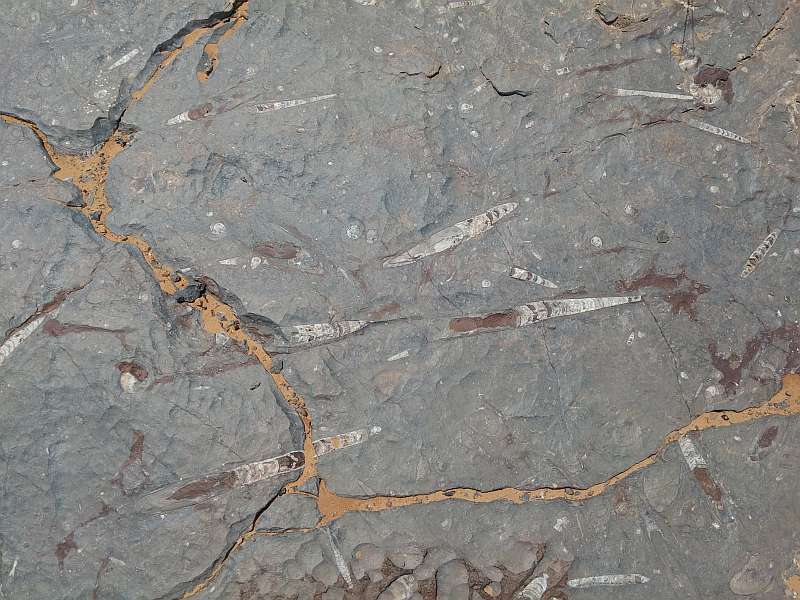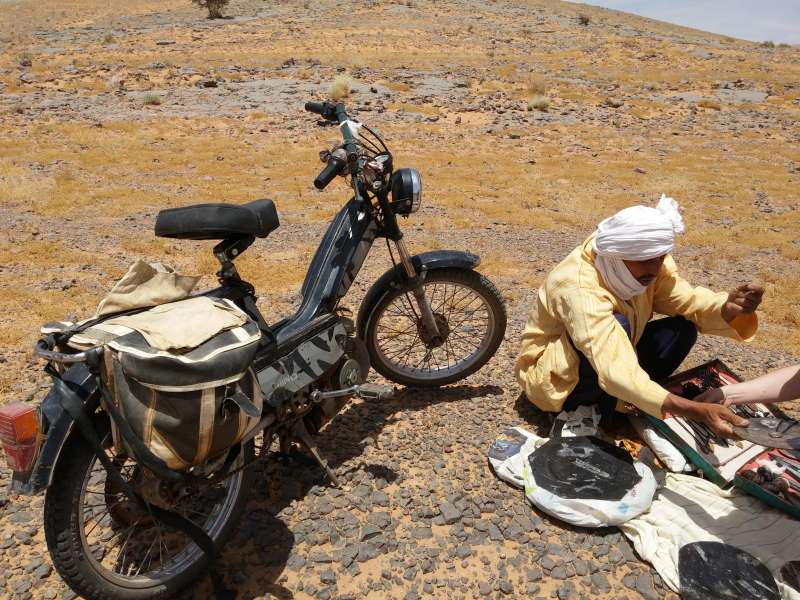I recently returned from a three week geological field trip to Morocco. This country is full of very versatile geology. Lots of structures (especially nicely folded sedimentary rocks), minerals, and rock types. And of course also fossils. Morocco is famous for its ammonites but there are also lots of trilobites and nautiloids from older Paleozoic rock strata.
Today I am focusing on the latter. These nautiloid fossils are locally known as Orthoceras although I am a bit sceptical that this is indeed the correct name. According to the Treatise on Invertebrate Paleontology, real Orthoceras (Orthoceras regulare) comes from my home country Estonia and adjacent areas. The coiled-shape fossils are often called ammonites but in this case it can not be because true ammonites did not occur before the Mesozoic. But they are cephalopods for sure. If someone more familiar in paleontology happens to read it, I would gladly welcome more specific names given to these fossils.
Dark gray rock containing these fossils is limestone from the Ordovician. The width of view is from 40 cm (closer shots) to about two meters. Yellow material in the cracks is desert sand. These photos were taken about 20 km away from the Algerian border in the Sahara desert. Closest Moroccan settlement is Erfoud.







Local traders on bikes arrive fast as soon as we arrived. The same pattern repeated itself in many places. The goods they are offering are local and genuine (actually made of the very same limestone we are standing on) and pretty inexpensive according to European standards. Of course you can not accept the price they are initially asking. It takes some practice but generally it is easy to agree for about 50% of the initial price or even less. I bought the plate with a nice nautiloid fossil right next to the man for six euros. I am sure it was a good trade for both of us although he asked for 12 euros as a starting price.